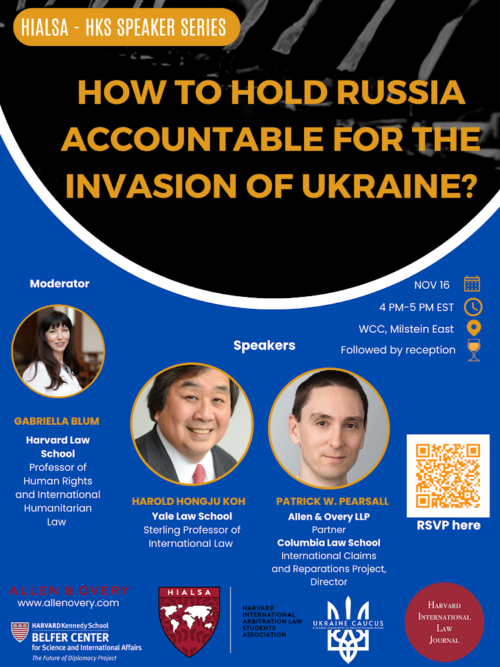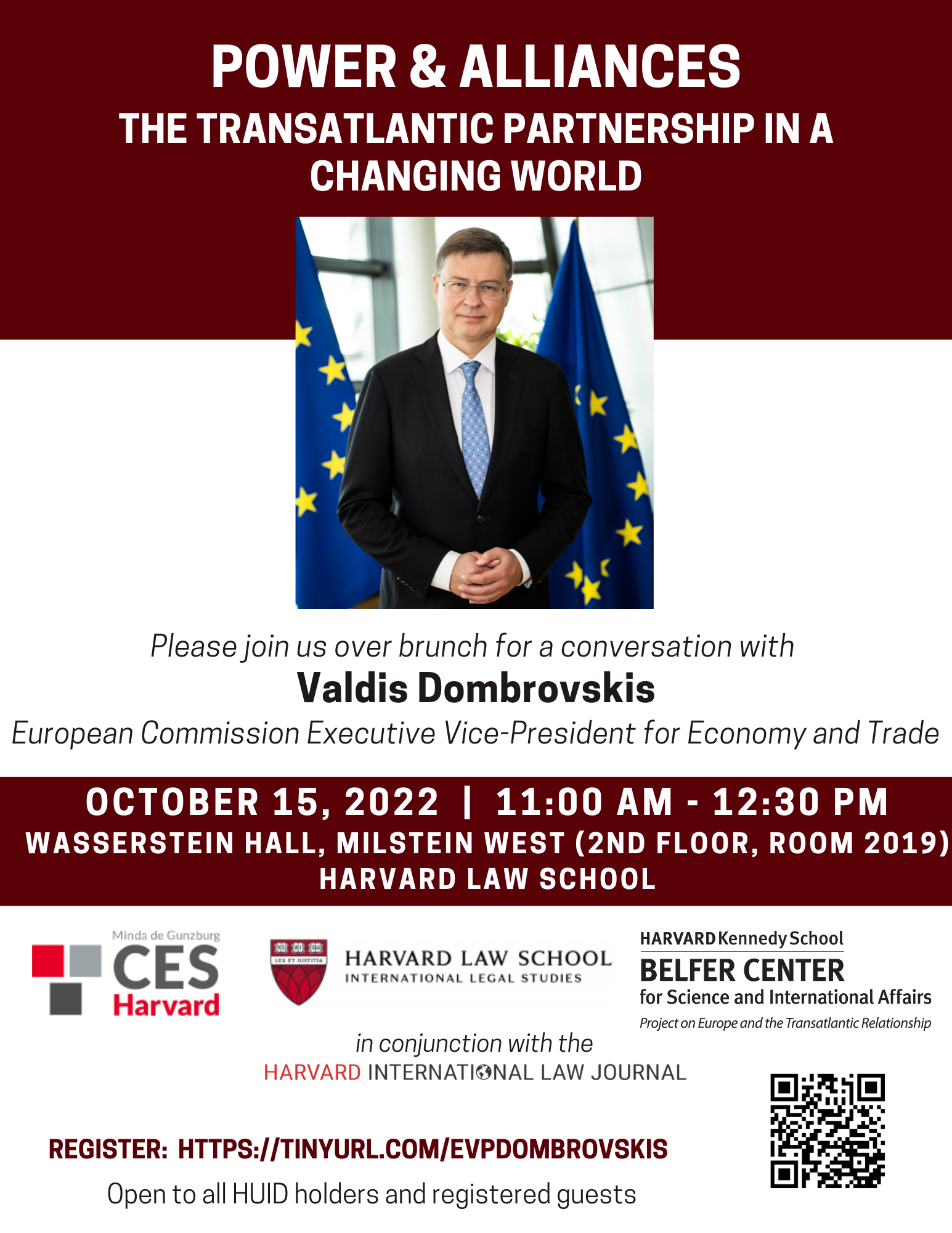
“How to hold Russia accountable for the invasion of Ukraine?” with Professor Harold Koh and Mr. Patrick W. Pearsall

NICOLE BREDARIOL & OMER DURU*
“How to hold Russia accountable for the invasion of Ukraine?”
On November 16, 2022, the Harvard International Law Journal and Harvard International Arbitration Law Students Association hosted a speaker series discussing one of the most pressing international law questions confronting the world today: how to hold Russia accountable for the invasion of Ukraine?
Keynote speakers, Professor Harold Koh of Yale Law School and Mr. Patrick Pearsall, Director of Columbia Law School’s International Claims and Reparations Project, challenged the invisible college of international lawyers to help protect the global order.[1] Invoking the image on Achilles’ shield, one of history’s greatest warriors, as a metaphor for arbitration playing a significant role in post-conflict dispute resolution, Mr. Pearsall addressed how international arbitration in the context of the war between Russia and Ukraine can help international law rise to this challenge. Professor Koh, discussing his role as counsel to Ukraine before the International Court of Justice (ICJ), posed an existential challenge to the Court during his closing arguments in March 2022, asking if it was powerless to stop naked aggression and war crimes. He framed the current events not as Russia versus Ukraine, but rather Russia versus the post-World War II international legal order, and implored the ICJ to act.
The international community has answered the call twice now, first when the ICJ issued a 13-2 order on provisional measures that Russia “shall immediately suspend the military operations that it commenced on 24 February 2022 in the territory of Ukraine.”[2] On 7 November 2022, the international community responded again when ninety-four members of the United Nations General Assembly (UNGA) voted to hold Russia accountable for its violations of international law, recognized the need for an international mechanism for reparations for damage, loss, and injury arising from Russia’s internationally wrongful acts, and recommended the creation of an international register of damage to preserve evidence and claims.[3]
Mr. Pearsall indicated the UNGA Resolution of 7 November 2022 creates the necessary framework for the establishment of a claims commission to account for Russia’s wrongful acts. Citing historical precedent for the establishment of post-conflict claims commissions, Mr. Pearsall asserted that a claims commission solely empowered with the authority to issue final and binding awards, is the most efficient and fair mechanism to ensure claims are lawfully adjudicated. Estimating that Russia’s invasion of Ukraine has caused in excess of $1 trillion in damages, Mr. Pearsall warned that Russia remaining an international pariah and outcast from global financial markets will have more detrimental effects on conflict resolution; thus, a claims commission is a necessary step for Russia’s reintegration into the global order.
Now the task falls to the invisible college of international lawyers to turn this call into action. Both Professor Koh and Mr. Pearsall asserted that the way forward should include interested States creating a commission through multilateral agreement, identifying the details of a claims register of harm, and determining how a Russia-Ukraine conflict claims commission will be funded. The Russia-Ukraine conflict will shape the next forty years of global relations; this is a unique opportunity for rising lawyers to become directly involved in the evolution of international law. As the speakers highlighted, the “train is just getting into the station, so get onboard.”
*Nicole Bredariol and Omer Duru are Harvard Law School LL.M Candidates, Class of 2023. They are focusing their studies on international humanitarian law and national security law.
1[1] Oscar Schachter, The Invisible College of International Lawyers, 72 Nw. U. L. Rev. 217 (1977). 2[2] Allegations of Genocide under the Convention on the Prevention and Punishment of the Crime of Genocide (Ukr. v. Russ.), Order, ¶ 86 (Mar. 16, 2022), https://www.icj-cij.org/public/files/case-related/182/182-20220316-ORD-01-00-EN.pdf. 3[3] G.A. Res. L.6/2022, U.N. Doc. A/ES-11/L/6 (Nov. 7, 2022).





